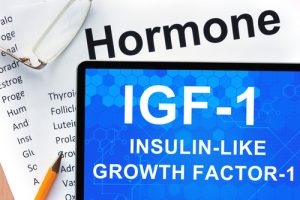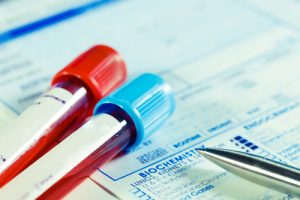
For the human body to operate in peak condition, Human Growth Hormone Levels must remain in an optimal state.
When HGH Levels are too low, in the case of Somatopause and Growth Hormone Deficiency, this leads to health issues that are often correlated with aging, such as loss of strength, fatigue, increased adipose fat deposits, mild cognitive decline, joint pain, impaired immune health, and more.
One of the many hormones that are impacted by HGH Deficiency is IGF-1. In fact, many of the symptoms that we associated with Growth Hormone Deficiency are the result of the resultant decline in IGF-1 levels.
Video Link: https://vimeo.com/290607363
Video Download: The Importance Of Igf 1 Boosting Igf 1 Levels With Sermorelin And Prescription Hgh
Video Stream: The Importance Of Igf 1 Boosting Igf 1 Levels With Sermorelin And Prescription Hgh
What is IGF-1?
IGF-1 stands for Insulin-Like Growth Factor-1, and it is a potent hormone that is a direct relative of Human Growth Hormone. IGF-1 is secreted by the liver and circulates through the bloodstream, promoting cellular metabolism and improved physiological function.
How Does the Body Produce IGF-1?
IGF-1 is just one aspect of the complex Hypothalamic-Pituitary Axis.
When the body recognizes a need for increased IGF-1/Human Growth Hormone activity, the Hypothalamus releases a hormone called Growth Hormone-Releasing Hormone, or GH-RH. GH-RH is a secretagogue, meaning that it exists to influence the production of another hormone. In this case, that hormone is HGH.
GH-RH travels to the pituitary gland via a set of blood vessels known as the Hypophysial Portal System, which acts as a highway for hormones to move between the Hypothalamus and the Pituitary. GH-RH stimulates pituitary cells known as Somatotrophs, which then release Human Growth Hormone.
Human Growth Hormone directly impacts many physiological systems as it travels through the bloodstream, but most of the heavy lifting is done by IGF-1 and other Growth Factors.
All HGH eventually circulates to the liver, where it is converted into IGF-1 and its relatives. IGF-1 then enters the blood and acts on cells all over the body, influencing metabolism and providing the great benefits of HGH Therapy.
How is IGF-1 Used to Diagnose Human Growth Hormone Deficiency?
Aside from its amazing effects on the human body, IGF-1 is incredibly vital for the accurate diagnosis of HGH Deficiency.
Because Human Growth Hormone is released episodically, it's challenging to measure HGH levels accurately. Growth Hormone Levels in the bloodstream surge and quickly fall in a matter of minutes. IGF-1 Activity is more regular, making it a reliable indicator of underlying Human Growth Hormone Production.
To assess IGF-1 Levels, the patient must provide a blood sample. Usually, that sample is tested for a variety of indicators of health, fitness, and hormone balance.
If IGF-1 levels are low, and the patient is displaying symptoms of Growth Hormone Deficiency, then they are likely eligible for Hormone Restoration with Bio-Identical Growth Hormone or Sermorelin Injections.
Boosting IGF-1 Levels with HGH and Sermorelin Acetate
To relieve HGH Deficiency by increasing Human Growth Hormone and IGF-1 Levels, there are two options available — Recombinant HGH Therapy and Sermorelin.
Both treatments are administered the same way, via Subcutaneous (SubQ) Injection. Using an insulin needle, the hormones are delivered into the fatty tissue just beneath the skin. The injections are both administered with the same frequency as well — usually five times per week, with two consecutive days of rest.
Both avenues of treatment are beneficial but achieve the goal of HGH Replenishment via different methods.
Sermorelin is a functional analog of Endogenous GH-RH, with a slightly different configuration that still activates Somatotrophs. Sermorelin encourages the body to produce its own HGH. Bio-Identical Growth Hormone, on the other hand, is a direct replacement for naturally produced Human Growth Hormone, improving daily HGH Levels.
Sermorelin is less expensive and can be prescribed off-label, which makes it an attractive substitute for Human Growth Hormone Shots.
Find a Hormone Doctor for HRT Therapy
If you're interested in improving your IGF-1 levels and combatting the effects of Somatopause, we may be able to help. Our Board-Certified HRT Clinic works with patients all across the country to restore Hormone Balance and improve the quality of life of our patients.
We work with men and women 30 and older, to identify and treat Hormone Imbalance and Deficiency and help patients live lives free of the constraints of various Hormone-Related Conditions.
If you'd like to speak with one of our Endocrinologists or Hormone Specialists, we offer a free consultation to our patients via phone.
We work with affiliate doctors in your area to make the diagnostic and treatment process a breeze, and we work with respected Hormone Pharmacies to provide you HRT Treatments of the highest quality and best price! We look forward to hearing from you!
References
Insulin-like growth factor 1 (IGF-1): a growth hormone
Contact Us For A Fast And Professional Response

- Sermorelin Acetate Side Effects [Last Updated On: February 12th, 2025] [Originally Added On: September 13th, 2020]
- What Is Sermorelin Therapy? Frequently Asked Questions [Last Updated On: February 12th, 2025] [Originally Added On: October 15th, 2020]
- Injectable Sermorelin with GHRP-6 for Men [Last Updated On: September 8th, 2024] [Originally Added On: November 2nd, 2020]
- FAQ Sermorelin and Wikipedia About Sermorelin: What are Sermorelin Acetate Injections? [Last Updated On: February 17th, 2025] [Originally Added On: November 3rd, 2020]
- Sermorelin Acetate Information [Last Updated On: October 12th, 2024] [Originally Added On: November 6th, 2020]
- Sermorelin Side Effects Explained [Last Updated On: February 10th, 2025] [Originally Added On: November 17th, 2020]
- HGH Side Effects: Risks and Dangers of Growth Hormone Therapy [Last Updated On: February 11th, 2025] [Originally Added On: November 19th, 2020]
- Ipamorelin Therapy for Human Growth Hormone Deficiency [Last Updated On: September 4th, 2024] [Originally Added On: November 24th, 2020]
- Improve Body Composition with Sermorelin Acetate [Last Updated On: October 26th, 2024] [Originally Added On: December 26th, 2020]
- How Can Sermorelin Help With Weight Loss ? [Last Updated On: August 21st, 2024] [Originally Added On: January 13th, 2021]
- What are the Benefits of Injectable Sermorelin Acetate? [Last Updated On: October 25th, 2024] [Originally Added On: January 20th, 2021]
- Buy Sermorelin Acetate Injections From a USA Clinic: HGH, testosterone, Sermorelin, HRT (Hormone replacement therapy) [Last Updated On: December 20th, 2024] [Originally Added On: February 8th, 2021]
- Sermorelin Therapy 21st Century Injectable Human Growth Hormone Restoration [Last Updated On: October 7th, 2024] [Originally Added On: February 16th, 2021]
- How Much Does Sermorelin Acetate Cost and How Does It Compare to HGH Therapy? [Last Updated On: August 24th, 2024] [Originally Added On: May 3rd, 2021]
- Buy Sermorelin -- What to do When Sermorelin Arrives in the Postal Mail [Last Updated On: February 16th, 2025] [Originally Added On: May 9th, 2021]
- Age Management with Sermorelin Injection Treatment [Last Updated On: March 7th, 2025] [Originally Added On: May 23rd, 2021]
- Sermorelin Acetate FAQ and Wiki Guide [Last Updated On: October 10th, 2024] [Originally Added On: May 25th, 2021]
- Buy Sermorelin: How Can I Legitimately Get a Sermorelin Prescription? [Last Updated On: November 23rd, 2024] [Originally Added On: May 30th, 2021]
- The Most Common Symptoms Associated with Sermorelin Acetate Injections [Last Updated On: September 27th, 2024] [Originally Added On: September 19th, 2021]
- Sermorelin Growth Hormone Releasing Hormone Analog [Last Updated On: January 18th, 2025] [Originally Added On: March 10th, 2022]
- Anti-Aging Benefits from Hormone Balance [Last Updated On: January 18th, 2025] [Originally Added On: March 22nd, 2022]
- How Can I Decide Between Sermorelin and HGH Injections? [Last Updated On: December 31st, 2024] [Originally Added On: January 25th, 2023]
- The Missing Vials Mystery [Last Updated On: August 12th, 2024] [Originally Added On: August 23rd, 2023]
- Gain Muscle and Improve Bodybuilding Results with Sermorelin Acetate Injections [Last Updated On: November 24th, 2024] [Originally Added On: March 9th, 2024]

















